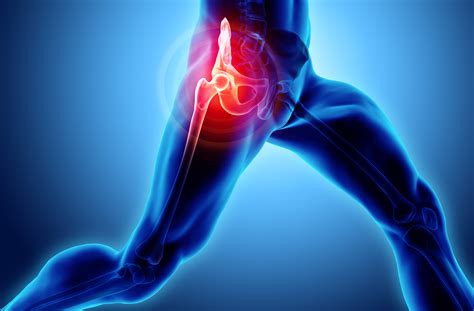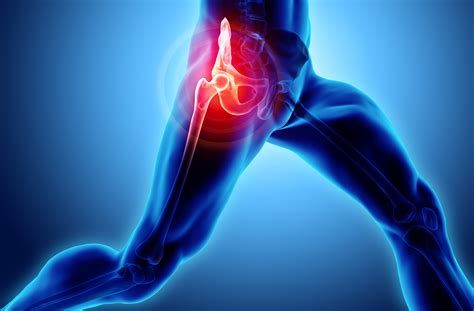

Suffering from hip pain? Learn about causes, symptoms, and treatment options to relieve your discomfort and improve your quality of life.
Hip pain can be a debilitating condition that affects anyone, from professional athletes to senior citizens. Whether it’s caused by injury or wear and tear, the pain can make even simple tasks like walking or sitting unbearable. But how do you know when it’s time to seek treatment? And what options are available for relief? In this article, we’ll explore the causes of hip pain, how it can impact your daily life, and the latest treatments that can help you get back to feeling like yourself again.
Daftar Isi
Introduction
Hip pain is a common complaint among people of all ages, but it is more prevalent in older adults. It can be caused by various reasons such as injury, arthritis, bursitis, or tendinitis. Hip pain can affect your daily activities and quality of life.
Symptoms
Pain
The most common symptom of hip pain is discomfort around the hip joint or groin area. The pain can be sharp, dull, or throbbing and can vary in intensity from mild to severe. It may also radiate down the leg.
Stiffness
You may feel stiffness in the hip joint, making it difficult to move your leg. This can affect your ability to walk, climb stairs, or even get out of a chair.
Swelling
In some cases, you may notice swelling or inflammation around the hip joint. This can be a sign of an underlying condition such as arthritis or bursitis.
Causes
Arthritis
Arthritis is a common cause of hip pain, especially in older adults. Osteoarthritis, rheumatoid arthritis, and psoriatic arthritis are the most common types of arthritis that affect the hip joint. Arthritis can cause chronic pain, stiffness, and limited mobility.
Bursitis
Bursitis is the inflammation of the fluid-filled sacs that cushion the hip joint. When these sacs become inflamed, it can cause pain and stiffness in the hip joint. Bursitis is often caused by repetitive motions or overuse.
Tendinitis
Tendinitis is the inflammation of the tendons that attach muscles to bones. When the tendons in the hip joint become inflamed, it can cause pain and stiffness. Tendinitis is often caused by overuse or repetitive motions.
Treatment
Rest and Ice
If you have an injury or inflammation in the hip joint, rest and ice can help reduce pain and swelling. Resting the hip joint can also prevent further damage.
Physical Therapy
A physical therapist can help you improve your hip strength and flexibility. They may recommend exercises to improve range of motion, reduce pain, and prevent future injuries.
Medications
Your doctor may prescribe medications such as nonsteroidal anti-inflammatory drugs (NSAIDs) or corticosteroids to reduce pain and inflammation in the hip joint.
Prevention
Exercise
Regular exercise can help keep your hip joint healthy and prevent injuries. Strengthening exercises can improve the stability of the hip joint, while stretching can improve flexibility.
Proper Form
When exercising, it is important to use proper form to avoid strain on the hip joint. If you are unsure of how to perform an exercise, ask a personal trainer or physical therapist for guidance.
Weight Management
Excess weight can put stress on the hip joint and increase the risk of developing hip pain or arthritis. Maintaining a healthy weight through diet and exercise can help prevent hip pain and other health problems.
Conclusion
Hip pain can be a debilitating condition, but there are various treatment options available. If you are experiencing hip pain, it is important to see a doctor to determine the underlying cause and develop an appropriate treatment plan.
Hip pain is a common condition that affects numerous individuals worldwide. Its prevalence is increasing with age, and it can be caused by a variety of factors. Here, we examine ten key subheadings related to hip pain to help readers understand potential causes, symptoms, and treatment options.Understanding Hip PainHip pain is a common term used to describe any discomfort felt in the hip joint. The hip joint is critical for mobility, and any pain in the hip can limit daily activities and significantly impact the quality of life. Individuals experiencing hip pain should seek medical attention to determine the cause of their discomfort.Common Hip Pain CausesHip pain can be caused by several underlying issues, including arthritis, bursitis, hip fractures or dislocation, sciatica, pinched nerves, tendinitis, and more. It’s important to identify the cause to determine the appropriate treatment for each patient. Arthritis, for example, can cause inflammation in the hip joint, leading to pain and stiffness. In contrast, bursitis is caused by inflammation of the bursae, which are small, fluid-filled sacs that cushion joints.Hip Pain SymptomsThe symptoms of hip pain can vary from person to person, but some common complaints include difficulty walking, limping, stiffness, swelling, and a decreased range of motion. Hip pain can also be felt in the groin, thigh, and buttocks, making it difficult to pinpoint the exact location of the pain. Individuals experiencing hip pain should seek medical attention if they experience any of these symptoms.Risk Factors for Hip PainCertain factors can increase a person’s risk of developing hip pain, including age, family history, obesity, sedentary lifestyle, overuse injury, and more. As individuals age, the cartilage in the hip joint can wear down, leading to arthritis and hip pain. Obesity can also put added pressure on the hip joint, increasing the risk of developing hip pain.Diagnosing Hip PainDiagnosis is a critical part of treating hip pain. Your doctor will perform a physical exam, analyze your medical history and symptoms, and may use diagnostic imaging tests such as X-rays and MRIs to determine the cause of the pain. Accurate diagnosis is essential in determining the appropriate treatment plan for each patient.Treating Hip PainTreatment options can vary depending on the underlying cause of hip pain. Some common treatments include rest, physical therapy, medication, joint injections, and in severe cases, surgery. Rest and physical therapy can help reduce inflammation and strengthen the muscles surrounding the hip joint. Medication can also be used to manage pain and reduce inflammation.Prevention of Hip PainThere are several measures individuals can take to prevent hip pain, including maintaining a healthy weight, stretching before exercise, wearing supportive shoes, and avoiding repetitive motions that can lead to overuse. Maintaining an active lifestyle and following proper exercise techniques can also help prevent hip pain.Hip Pain ManagementHip pain management is essential for improving quality of life. Patients can self-manage their pain through lifestyle modifications, pain-relieving medication, or alternative therapies like acupuncture as part of an overall pain management strategy. Working with a healthcare professional can also help individuals develop a personalized pain management plan.Hip Pain and ExerciseIn some instances, exercise can help reduce hip pain symptoms by strengthening the surrounding muscles, supporting joint flexibility and reducing inflammation. Low-impact exercises like swimming, cycling, and yoga can be effective in managing hip pain. However, individuals should consult with their healthcare professional before starting any new exercise routine.When to See a DoctorHip pain that does not improve within a few days or worsens should prompt a visit with a doctor. Delayed treatment could lead to permanent damage, making it essential to seek medical advice in a timely manner. Early diagnosis and treatment can help prevent further damage and improve an individual’s quality of life.Hip pain is a common complaint among people of all ages. It can be caused by a variety of factors, including injury, overuse, and medical conditions. As a journalist, it’s important to examine both the pros and cons of hip pain.Pros of Hip Pain:1. Signals an Issue: Hip pain is often a warning sign that something is wrong. It can alert us to an underlying medical condition that needs attention, such as arthritis or a bone fracture.2. Rest and Recovery: In some cases, hip pain can be a good reason to take a break from physical activity and allow for rest and recovery. This can be beneficial for individuals who are prone to overexertion or who need time to heal after an injury.3. Improved Quality of Life: If hip pain is treated effectively, it can lead to improved mobility and quality of life. This can be especially important for older adults who want to maintain their independence and ability to do everyday activities.Cons of Hip Pain:1. Limitations on Physical Activity: Hip pain can prevent individuals from engaging in physical activities they enjoy, such as running or hiking. This can have a negative impact on overall health and wellness.2. Reduced Quality of Life: Chronic hip pain can be debilitating and affect a person’s ability to work, socialize, and engage in daily activities. This can lead to feelings of depression and isolation.3. Long-term Consequences: If left untreated, hip pain can lead to long-term consequences, such as joint damage or deformity. This can require more invasive treatments, such as surgery, to correct.In conclusion, hip pain can have both pros and cons depending on the situation. While it can signal an underlying issue and allow for necessary rest and recovery, it can also limit physical activity and have a negative impact on overall quality of life. It’s important to seek medical attention if hip pain persists or worsens.
If you are experiencing hip pain, it is important to seek medical attention to properly diagnose the underlying cause. Hip pain can have various causes, ranging from injury or overuse to arthritis or other chronic conditions. Ignoring this discomfort can lead to further complications and hinder your quality of life.
Some common symptoms of hip pain include stiffness, aching, and difficulty moving the hip joint. It can also affect your ability to walk or perform daily tasks. Depending on the severity of your condition, your healthcare provider may recommend physical therapy, medication, or even surgery as treatment options.
It is crucial to maintain good hip health by engaging in regular exercise, maintaining a healthy weight, and avoiding activities that put excessive strain on your hips. If you experience any discomfort or pain, listen to your body and take the necessary steps to alleviate it. Don’t let hip pain hold you back from living an active and fulfilling life.
Remember, seeking medical attention and proper treatment is key to managing hip pain. Don’t hesitate to consult with your doctor to determine the best course of action for your specific needs. Take care of your hips and they will take care of you.
Video hip pain
As a journalist, I understand that people often have questions about their health. One common concern is hip pain. Here are some of the most frequently asked questions and their answers:
-
What are the common causes of hip pain?
- Injuries such as fractures or dislocations
- Arthritis
- Tendinitis
- Bursitis
- Hip impingement
-
When should I see a doctor for hip pain?
- If the pain is severe or sudden
- If you have difficulty walking or standing
- If you experience swelling or redness
- If you have a fever along with hip pain
- If the pain persists for more than a few weeks
-
How is hip pain treated?
- Rest and ice
- Pain relievers such as acetaminophen or ibuprofen
- Physical therapy
- Corticosteroid injections
- Surgery in severe cases
-
Can exercise worsen hip pain?
- It depends on the cause of the pain and the type of exercise.
- Low-impact exercises such as swimming and yoga can be beneficial for hip pain.
- High-impact exercises such as running or jumping may worsen hip pain.
- Consult with a doctor or physical therapist before starting any exercise program.
-
Is surgery always necessary for hip pain?
- No, surgery is not always necessary.
- Many cases of hip pain can be managed with non-surgical treatments such as rest, physical therapy, and medication.
- Surgery may be recommended in severe cases or if non-surgical treatments do not provide relief.
- Consult with a doctor to determine the best course of treatment for your hip pain.






